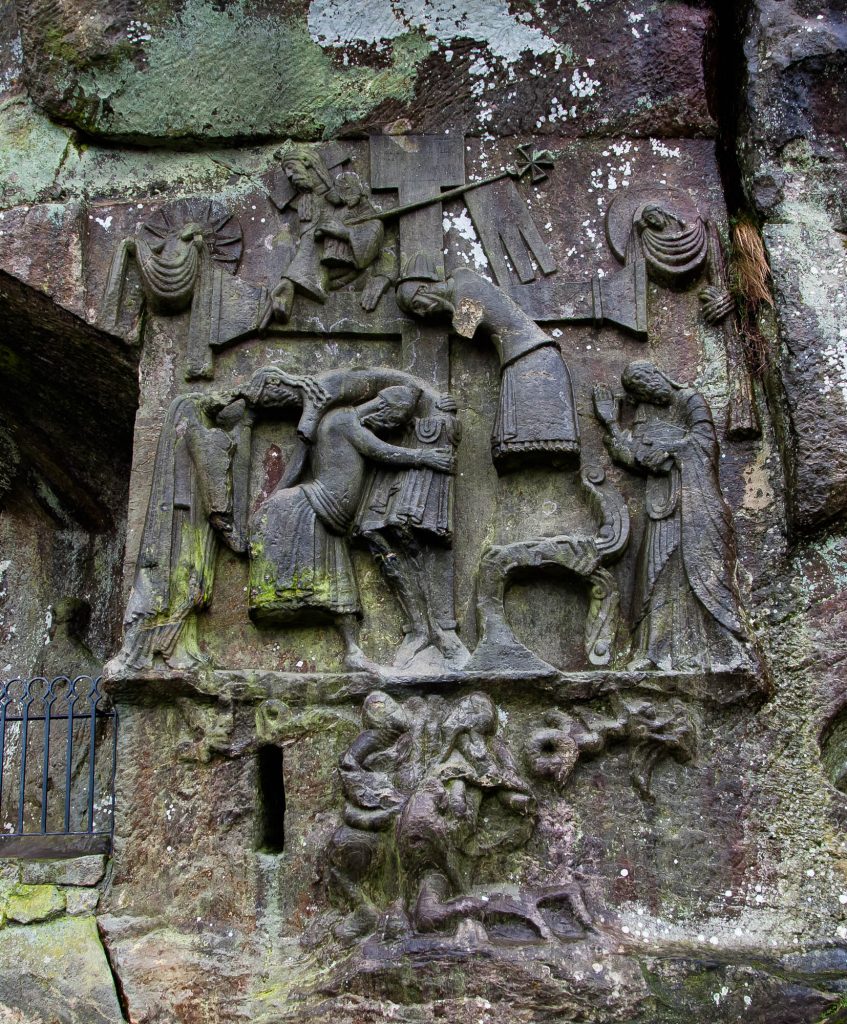
Just before his crucifixion, Jesus prayed, “Father, the hour has come; glorify your Son, that the Son may glorify you.” It is not easy to understand how the crucifixion could be anything other than a painful way to die but this is not the only place where Jesus connected his death with his glorification. In the third chapter of John, Jesus spoke of his crucifixion in terms of being ‘lifted up’ (ὑψωθῆναι). Nicodemus could not have missed the play on words, and perhaps he read a deeper meaning into them, for Jesus seems to be alluding not only to the OT story of the brazen serpent but also to the words of Isaiah: “Behold, my servant shall act wisely; he shall be high and lifted up (ὑψωθήσεται), and shall be glorified (δοξασθήσεται).” (Isa. 52:13) Isaiah speaks of the glorification of the Servant, but then Isaiah does something that has puzzled generations of readers. He begins to speak about the suffering of the Servant as though that were his glorification.
The apostle Paul may refer back to this passage in Isaiah when he writes in his letter to the Philippians about how Christ took upon himself the appearance of a servant, becoming obedient unto the point of death. Therefore, Paul declares, “God exalted him (ὑπερύψωσεν) and gave him the Name that is above every name…” This name can be none other than the name Yahweh as every Jewish person knew… and a good many Gentiles too. But no! Paul says the name is Jesus. And of course, that is Paul’s point. Jesus is Yahweh. Paul continues, “…so that at the name of Jesus every knee should bow, in heaven and on earth and under the earth, and every tongue confess that Jesus Christ is Lord (ὅτι κύριος Ἰησοῦς Χριστὸς) to the glory of God the Father.” (Phil. 2:9-11)
We find a similar expression in 1 Corinthians and there also Paul identifies Christ Jesus with the name for God in the OT: Yahweh.
“But to us there is but one God (theos), the Father, of whom are all things, and we in him; and one Lord, Jesus Christ (εἷς κύριος Ἰησοῦς Χριστὸς), by whom are all things, and we by him. (1 Cor. 8:6 KJV)
This is essentially the New Testament rendition of the Shema. It is an important statement about the identity of Christ for it places the Lord Jesus Christ in direct relation to God the Father. The essential unity of this profession is strengthened by the fact that the two names, Elohim (theos) and Yahweh (kurios) are the primary names for God in the Old Testament.
And here is a final challenge from Isaiah 53 that I had not seen before.
He was led away after an unjust trial – but who even cared? (Is. 53:8 NET)
I think the NET makes a good translation of this verse (cf. “we esteemed him not”, “we did not desire him”, “we considered him stricken, afflicted…”, etc.). And so that is Isaiah’s challenge for me this Easter, to care.